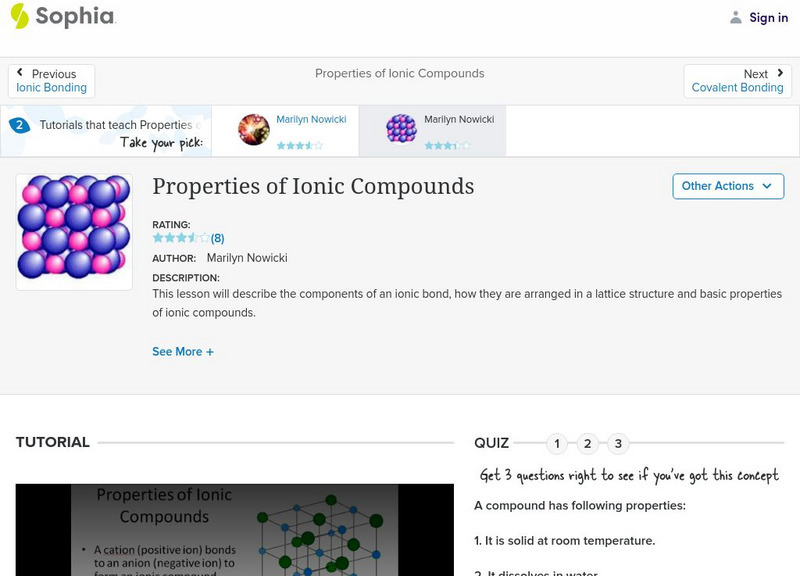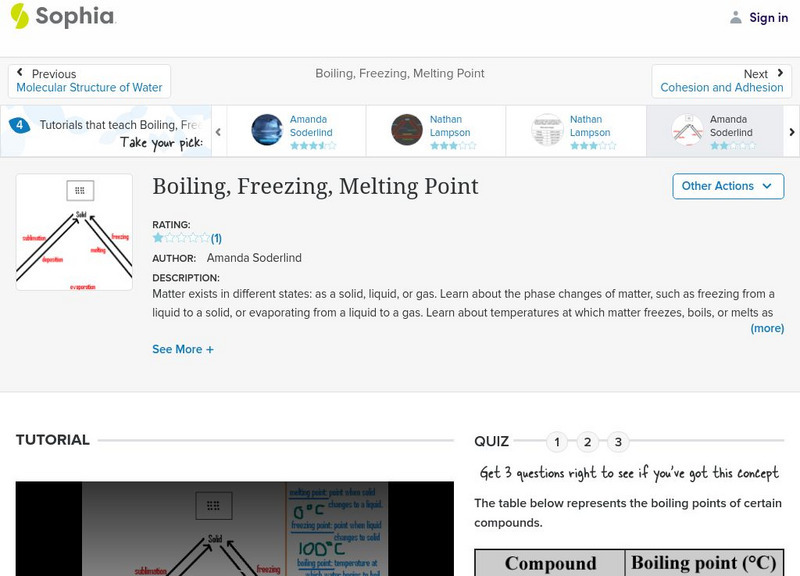Hi, what do you want to do?
Curated Video
Introduction to Group 7 Elements: The Halogens
This video provides an overview of the properties and characteristics of Group 7 elements, also known as the halogens. It explains the electronic structures of the first three halogens and how they all have a strong desire to gain an...
Curated Video
Introduction to States of Matter and State Changes
The video explains the three main states of matter, which are solids, liquids and gases, and their properties. The concept of state symbols is introduced to indicate what state chemicals or particles are in a reaction. The video also...
Curated Video
Introduction to Noble Gases and their Properties
This video discusses the properties and characteristics of the noble gases, which are situated on the far right of the periodic table. The video explains how their unreactive nature leads them to exist as single atoms, which is different...
Rock 'N Learn
Physical Science : Physical Changes Through Heating
Physical Science for Kids is the fun way to learn important facts about physical science and get ready for tests. Take a fascinating journey to the Super Science Station to learn about bioling, melting and heating different substances!
Curated Video
Exploring the Wonders of Gallium
This video provides a comprehensive description of gallium, its discovery, properties, and various applications in different industries.
msvgo
Trends in Physical Properties of Group 13 Elements
It describes the properties of boron family compounds It discusses about atomic radii and ionic radii It explains the trends of ionisation enthalpy and electronegativity.
msvgo
Properties of matter and their measurement
It gives information about physical properties of matter & various units used in the measurement.
FuseSchool
PHYSICS - Matter - Specific Latent Heat
When a substance changes its state, heat energy is involved. This energy is used not to heat up the substance, but to separate the molecules from each other. This is known as specific latent heat. Specific latent heat is defined as the...
Visual Learning Systems
The Changing Phases of Matter: Solid to Liquid Phase Change
Upon viewing the The Changing Phases of Matter video series, students will be able to do the following:
Explain that phases of matter, also called states of matter, are the physical forms matter can take.
State the four phases of...
Rock 'N Learn
Physical Science for Kids - Lab Safety, Scientific Method, Atoms, Molecules, Electricity, and More
Physical Science for Kids is the fun way to learn important facts about physical science and get ready for tests. Take a fascinating journey to the Super Science Station to learn about lab safety, the scientific method, atoms, molecules,...
Khan Academy
Khan Academy: Ionic Bonds and Coulomb's Law
Coulomb's Law is used to explain the melting point of ionic compounds. [7:32]
Khan Academy
Khan Academy: 2015 Ap Chemistry Free Response 6
Do you remember how to write a net ionic equation? This video reviews an AP Chemistry exam free response problem that is solved step-by-step. Students can review over the melting points of salts as well as how to write the net ionic...
Sophia Learning
Sophia: Properties of Ionic Compounds: Lesson 2
This lesson will describe the components of an ionic bond, how they are arranged in a lattice structure and basic properties of ionic compounds. It is 2 of 2 in the series titled "Properties of Ionic Compounds."
Sophia Learning
Sophia: Properties of Ionic Compounds: Lesson 1
This lesson will describe the components of an ionic bond, how they are arranged in a lattice structure and basic properties of ionic compounds. It is 1 of 2 in the series titled "Properties of Ionic Compounds."
Sophia Learning
Sophia: Boiling, Freezing, Melting Point: Lesson 3
This lesson will introduce the phase changes that occur at the boiling, freezing, and melting points. It is 3 of 4 in the series titled "Boiling, Freezing, Melting Point."










